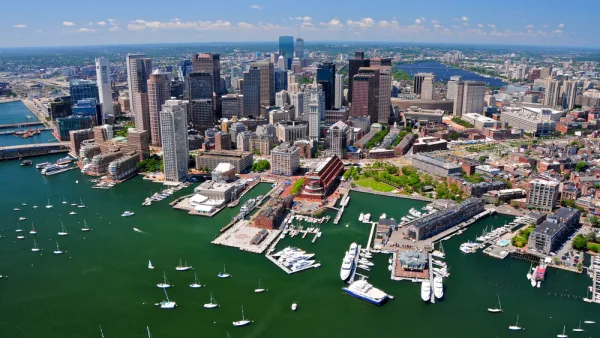Boulder Colorado has tried peer pressure, free weatherization services, and intense publicity, but so far, voluntary efforts to increase energy efficiency have yielded mediocre results.
Boulder residents were the first in the nation to approve a "carbon-tax" to fund energy conservation programs. But the eco-city's carbon footprint dropped just 1% between 2006 and 2008.
Paul Sheldon, a consultant who advises the city on conservation, tells the Wall Street Journal's Stephanie Simon, "residents should be driving high-efficiency vehicles, and they're not. They should be carpooling, and they're not." And he says, they should be changing their own light bulbs-and they're not. Instead, a tax-payer funded team called "Techs in a Truck" is fanning out across Boulder to unscrew lightbulbs and replace them with energy-efficient models.
Climate change policy analysts wonder whether Boulder should be used as a blueprint for other municipalities. A city report published last fall calls for stepped-up regulation because voluntary actions have been slow to show results. In the short term, Boulder will shift its advertising strategy to focus on the financial benefits of saving energy, instead of environmental ones.

National Parks Layoffs Will Cause Communities to Lose Billions
Thousands of essential park workers were laid off this week, just before the busy spring break season.

Retro-silient?: America’s First “Eco-burb,” The Woodlands Turns 50
A master-planned community north of Houston offers lessons on green infrastructure and resilient design, but falls short of its founder’s lofty affordability and walkability goals.

Delivering for America Plan Will Downgrade Mail Service in at Least 49.5 Percent of Zip Codes
Republican and Democrat lawmakers criticize the plan for its disproportionate negative impact on rural communities.

Test News Post 1
This is a summary

Test News Headline 46
Test for the image on the front page.

Balancing Bombs and Butterflies: How the National Guard Protects a Rare Species
The National Guard at Fort Indiantown Gap uses GIS technology and land management strategies to balance military training with conservation efforts, ensuring the survival of the rare eastern regal fritillary butterfly.
Urban Design for Planners 1: Software Tools
This six-course series explores essential urban design concepts using open source software and equips planners with the tools they need to participate fully in the urban design process.
Planning for Universal Design
Learn the tools for implementing Universal Design in planning regulations.
EMC Planning Group, Inc.
Planetizen
Planetizen
Mpact (formerly Rail~Volution)
Great Falls Development Authority, Inc.
HUDs Office of Policy Development and Research
NYU Wagner Graduate School of Public Service




























